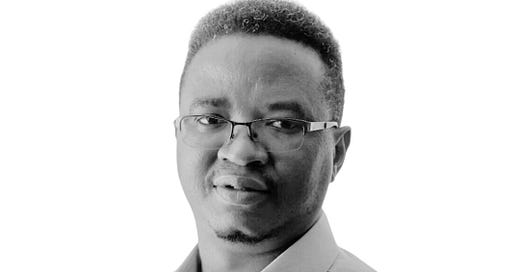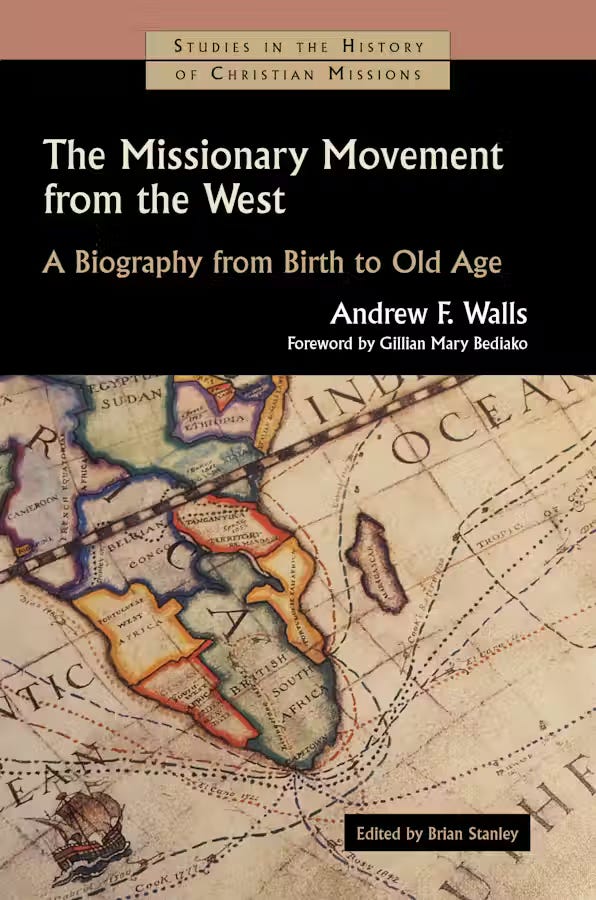Welcome to “Global Witness, Globally Reimagined.” You get a glimpse here of the kind of work that I do both at Church Mission Society and Missio Africanus where I help students of all levels (from unaccredited courses to PhD) explore the theological (and missiological) implications of the rise of World Christianity. In the newsletter, I focus on the subject of global witness in the context of the twenty-first century. Every Thursday, I share a thought that has spoken to me in the week, one or two resources that I trust will be helpful to you, and three exciting quotes about mission to give you something to think about as you go through your day. I pray one of these will energise you.
NB: Please note that I will soon start tailoring most of my content towards paid subscribers. There will still be occasional posts open to everyone, but most will be for paid subscribers. If you appreciate the newsletter and are able to pay for a subscription, please consider doing so.
1. Thought I Can’t Shake Off
The Pew Research Centre published a report on 19 August 2024 entitled “The Religious Composition of the World’s Migrants.” I found the subtitle quite intriguing: “Christians are the largest migrant group, but Jews are most likely to have migrated.” As we would always expect from the Pew Research Centre, the report is a treasure chest for us working in the intersecting space between religion (Christianity, mission) and migration. The research behind it is excellent. And the implications of what they describe are massive. Chapter 3 of the report focuses on Christianity and it has this to say:
Christians are the largest religious group in the world among both migrants and nonmigrants. They are overrepresented among international migrants, accounting for 30% of the world’s overall population and 47% of all people living outside their country of birth, as of 2020.
Most of the world’s 131 million Christian migrants live in Europe (37%) or North America (30%). About 10% are in the Asia-Pacific region, followed by a little over 9% each in the Latin America, Caribbean and sub-Saharan Africa regions.
Only 4% of Christian migrants live in the Middle East and North Africa.
Europe is the most common place of origin for Christian migrants (35%), followed by Latin America and the Caribbean (30%). Fewer Christian migrants originated from a country in the Asia-Pacific region (17%) or sub-Saharan Africa (13%). About 2% of all Christian migrants were born in North America, and 2% were born in the Middle East-North Africa region.
There is a lot that we can do with this information (and I hope to reflect some more on it in the coming weeks). But for now, the naming of the fact that Europeans form 35% of all Christian migrants in the world needs a great deal of unpacking. While I understand the factors behind this reality, I am also aware of the anti-migrant rhetoric that prevails in many European countries at the moment.
I was pretty surprised by the report’s discussion on Christian migration in Africa.
Migrants in sub-Saharan Africa are 54% Christian and 37% Muslim. Another 5% are from “other religions” – including traditional African religions – and 4% are estimated to be religiously unaffiliated. By comparison, the region’s overall population is 62% Christian and 31% Muslim.
Many of the migrants living in the region were born in the Democratic Republic of the Congo (1.9 million), South Sudan (1.7 million), Burkina Faso (1.6 million) and Mali (1.2 million).
South Africa hosts the largest immigrant population in the region (2.9 million), followed by Ivory Coast (2.6 million), Uganda (1.7 million), Nigeria (1.3 million) and Ethiopia (1.1 million).
I am not sure why Nigeria is not on the list of the largest migrant-sending countries but I will leave that question for next week.
Once again, you can access the PEW report here: https://www.pewresearch.org/religion/2024/08/19/the-religious-composition-of-the-worlds-migrants/.
2. Resources I am Enjoying
Book: Andrew F. Walls and Brian Stanley, The Missionary Movement from the West: A Biography from Birth to Old Age, (Grand Rapids, MI: Eerdmans, 2023).
Throughout his long and fruitful career, Andrew Walls told the story of the expansion of the Christian faith as a dedicated Christian scholar, teacher, and mentor. Before his passing in 2021, he entrusted the editing of some of his lectures to his friends and students. The result of this labour of love, The Missionary Movement from the West, is a must-read for scholars of missiology, world Christianity, and church history. The book is an overview of the Western, Protestant, and modern missionary movement, from its birth with the Puritans and Pietists to its end in the twentieth century. Now that Christianity has become primarily an African, Latin American, and Asian religion rather than a European one, the dynamics of the church's mission have transformed. Sensitive to this shift, Walls indicates new areas of listening to and learning from this new centre of Christianity and speculates on the theological contributions from a truly global church.
3. Quotes I am Pondering
… belonging to the people of God is not primarily a matter of race, birth, and so on, but a matter of response to the invitation of God through faith and faith-deeds. — John S. Pobee
At the heart of the missional nature of the church, we discover the God of the Bible as a God of development, a God who is concerned about the poor, weak, vulnerable, isolated and powerless. — Rowanne Sarojini Marie
The churches in the Third World today are strong or weak in proportion to the depth of their vernacular roots, roots that mission had nurtured through attention to scriptural translation. — Lamin Sanneh
I pray that you will be faithful to the work God has for you this week.




